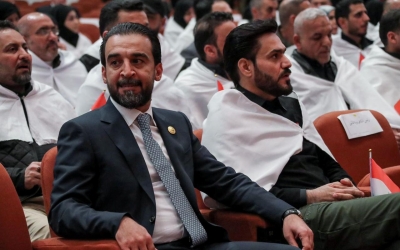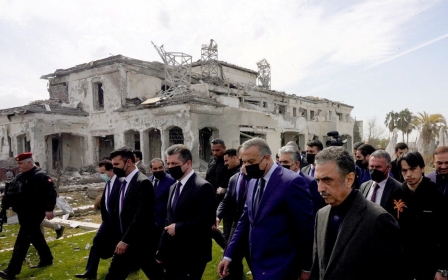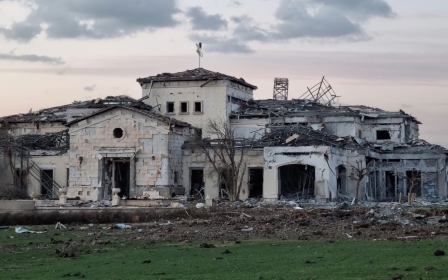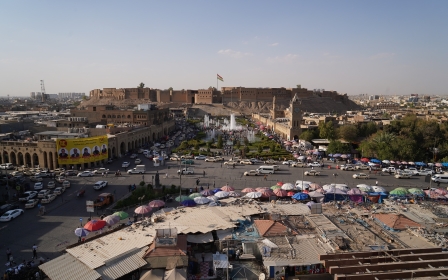Iraq: Missile attack causes fire at oil refinery in Erbil
A missile attack targeted an oil refinery in Iraq's northern city of Erbil on Sunday causing a fire in one of its main tanks that was later brought under control, the Iraqi security forces said in a statement.
A missile also landed in the outer fence of the KAR refinery without causing any casualties, the statement added.
The attack comes after Middle East Eye reported last week that Iran had begun piling pressure on Kurdish leader Masoud Barzani and the speaker of Iraq's parliament, Mohammed al-Halbousi, hoping to convince them to abandon Muqtada al-Sadr's political project and save Tehran's Iraqi allies.
Anti-terrorism authorities in the autonomous Kurdish region said a total of six missiles had landed near the refinery, adding they were launched from Nineveh province.
The security forces said they found a launch pad and four missiles in the Nineveh Plain after the attack and defused them.
New MEE newsletter: Jerusalem Dispatch
Sign up to get the latest insights and analysis on Israel-Palestine, alongside Turkey Unpacked and other MEE newsletters
Iraqi Prime Minister Mustafa al-Kadhimi said the armed forces will pursue the perpetrators of what he called a "cowardly attack", while discussing the security situation in a phone call with Barzani, the prime minister's office said on Twitter.
Three missiles also fell near the refinery on 6 April, without causing any casualties.
Sources in the Kurdistan Regional Government told Reuters then that the refinery is owned by Iraqi Kurdish businessman Baz Karim Barzanji, chief executive of major domestic energy company the KAR Group.
Iranian pressure
Six months on from Iraq's October elections, and neither Sadr's Save the Homeland alliance nor the Iran-backed Shia Coordination Framework, led by former prime minister Nouri al-Maliki, has been able to form a government.
The influential Shia cleric had sought to exclude his rivals by forming a majority government alongside Barzani's KDP and the Sunni Sovereignty bloc, led by Halbousi.
But abstaining Coordination Framework MPs have choked all progress in parliament, prompting Sadr on 30 March to withdraw from politics for 40 days and set his rivals a deadline to form a coalition of their own.
With two weeks to go, Iran believes Sadr's "tactical" retreat has given its allies an "irreplaceable" opportunity to dismantle his alliance, Iraqi politicians and observers told MEE.
Iran tends to pressure parties in Iraq using a combination of intimidation and enticement.
US and Iraqi officials told MEE they did not know precisely what offer Iran was giving Barzani, but predicted Tehran could use a number of tools.
In March, Iran attacked Erbil with a dozen ballistic missiles in an unprecedented assault on the capital of the region that appeared to target the United States and its allies.
Meanwhile, officials noted that the Kurdish government smuggles oil, goods and money via Iran - revenue that Tehran could easily turn off.
Middle East Eye delivers independent and unrivalled coverage and analysis of the Middle East, North Africa and beyond. To learn more about republishing this content and the associated fees, please fill out this form. More about MEE can be found here.





